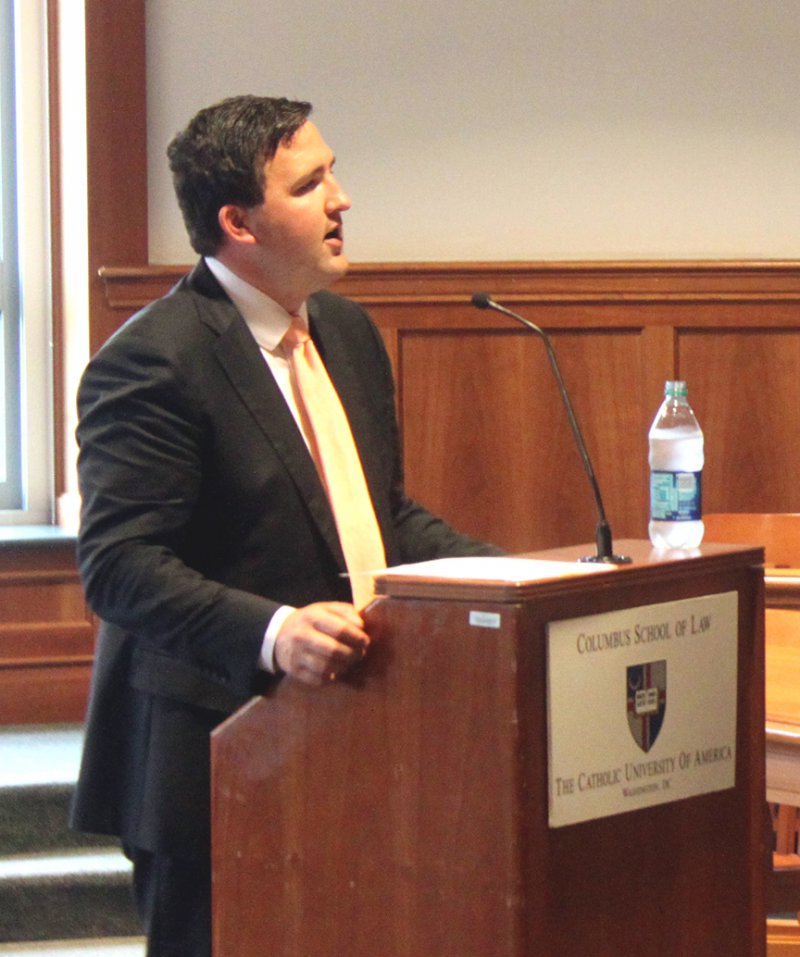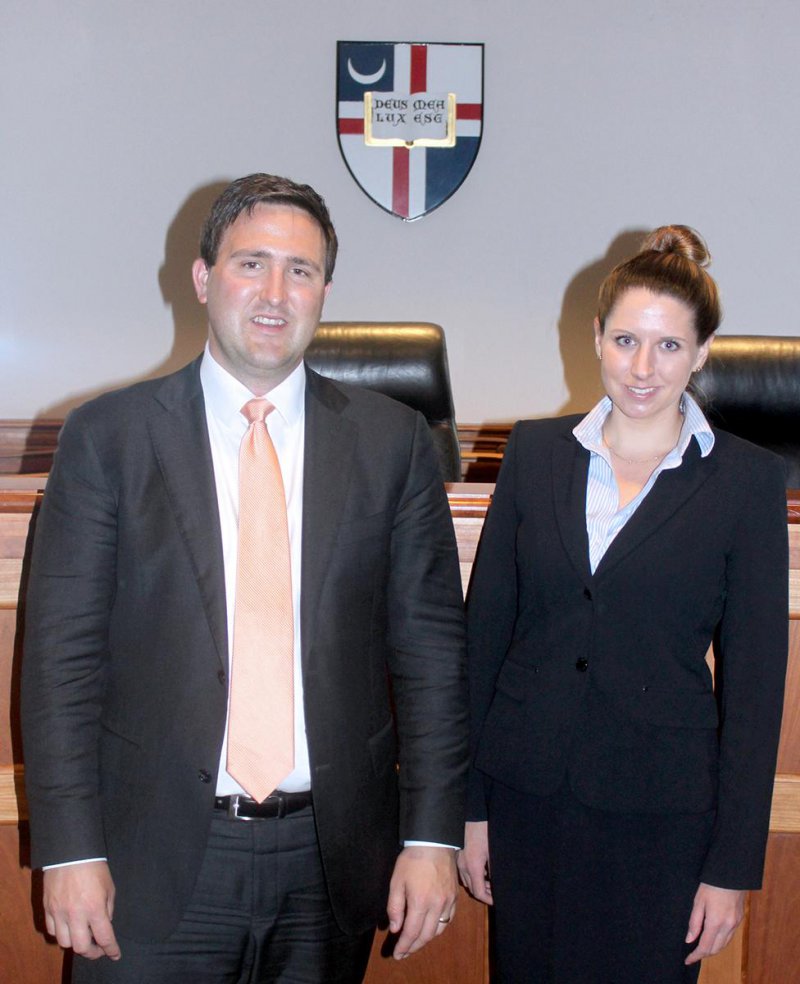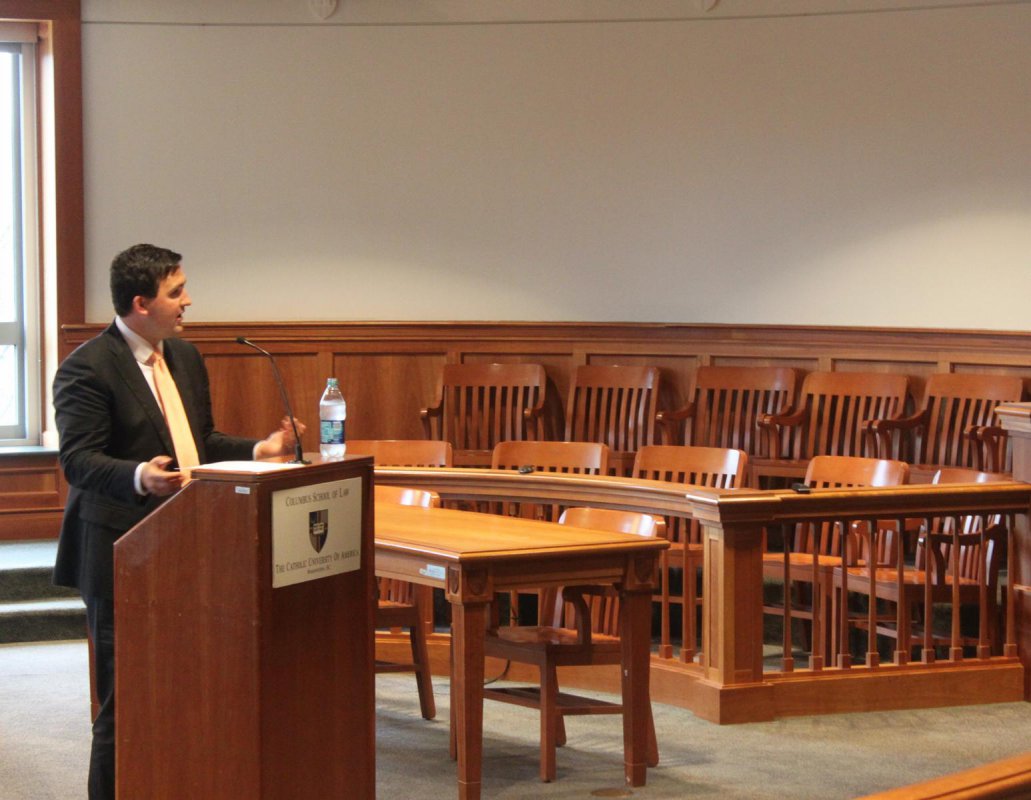
The enactment of Colorado Amendment 64 in November 2012 permits adults aged 21 or older to legally grow up to six cannabis plants and enjoy the benefits of the harvest. There are several important caveats in the law, and consumption in public remains illegal. Nor can marijuana purchased by visitors or tourists be taken out of state.

Despite these limitations, Colorado's acceptance of the recreational use of marijuana remains in stark conflict with federal law, noted Michael Francisco, former Assistant Solicitor General for Colorado's Attorney General (above and at left with Sarah Waters, president of CUA's Federalist Society). Invited to speak on April 14 by Catholic University's Federalist Society, Francisco's lecture, "The Colorado Marijuana Experiment - is it State Nullification of Federal Marijuana Prohibition, or Selective Federal Non-Enforcement?" described some of the problems that have arisen since the law was enacted. Francisco, who is now a partner at MRDLaw in Colorado Springs, was deeply involved in monitoring Colorado's marijuana regulations in his former job. He began by noting that his state's lax approach to cannabis use has proven wildly popular; legal marijuana dispensaries now outnumber Starbucks locations in Colorado by 10 to 1. Despite Amendment 64, however, marijuana users in the state remain vulnerable to the threat of federal prosecution. "Anyone who possesses any amount of marijuana is still in violation of federal law, despite what the state laws say," Francisco observed.

In accordance with federal law, banks in Colorado may not handle funds from its marijuana sales, making it an all-cash industry and thus more attractive to potential thieves or criminals. "There's a serious safety issue," he said. Additionally, since lawyers are prohibited from counseling clients engaged in criminal behavior, at least from the federal point of view, Colorado's state bar advises its members not to represent clients involved in the marijuana business. "Our current state is the worst of all possible worlds," Francisco told his audience. "Either state or federal law should be supreme on this issue. They should not be in conflict." The conundrum may not be settled unless the Supreme Court accepts a relevant case for review. That just may happen. In late 2014, neighboring states Oklahoma and Nebraska asked the Court to strike down Colorado's legalization of marijuana, arguing in a lawsuit that "the State of Colorado has created a dangerous gap in the federal drug control system."
